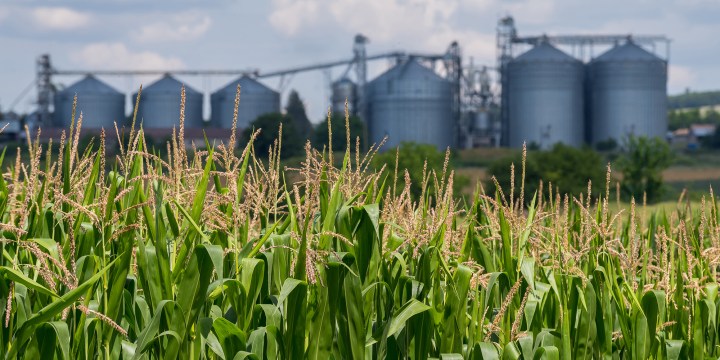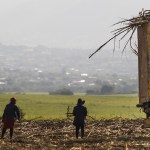AGRICULTURAL PRODUCTION
Biggest threat to food security in SA is ‘lack of subsistence farming’ – panel warns

Global and economic factors are a major threat to food security, alongside the changing climate. The lack of subsistence farming as urbanisation grows contributes to this. However, with a government plan in hand, can the threat to food security be minimised?
The Covid-19 pandemic, Russia’s war in Ukraine and the KZN floods are some of the recent major factors that have had a detrimental effect on food security in South Africa, a webinar has heard.
At the webinar, a panel of experts from the Department of Agriculture, Land Reform and Rural Development, Agri SA and Statistics South Africa discussed “Food Security and Subsistence Farming”.
At a national level, South Africa remains food secure, Stats SA has said. However, at a household level, food insecurity is prevalent, with almost 20% of households being affected. About 17.28% (10.1 million) of South Africans experienced moderate food insecurity, while 7% (4.1 million) were classified as severely food insecure in 2019.
In the categories of moderate and severe food insecurity, female and black population groups were the most affected. Factors such as poverty, unemployment, income inequality, climate change, cost of living, unstable food production and past spatial imbalances, as well as the ability to produce food, were some of the driving factors of food insecurity, said Dr Nathaniel Dlamini, survey statistician at Statistics South Africa.
Dr Jemina Moeng, director of smallholder development at the Department of Agriculture, Land Reform and Rural Development, said in response to a query by this publication that the biggest threat to food security in South Africa was the lack of subsistence farming.
Visit Daily Maverick’s home page for more news, analysis and investigations
“A lot of communities are reluctant to engage in agricultural production. Some are constrained, yes, they don’t have land, and some are constrained as they don’t have the natural resources for production such as water.
“But a household garden in your backyard, even in a township or even in Sandton, will provide you with some vegetables. You don’t necessarily need huge farms. So the biggest threat is people shying away from home food production and wanting to rely on food purchasing, which relies again on the money you earn,” Moeng said.
A study by the Integrated Food Security Phase Classification body states the Covid-19 pandemic mitigation measures, the rising cost of food, drought, and the country’s economic decline are the leading causes of food insecurity in South Africa.
There is no doubt that the increasing reality of the climate crisis poses a huge threat to food security, which has seen dwindling water resources, as evident in intensified droughts — with rising and extreme temperatures threatening the moderate climate needed for food production.
With the majority of humankind dependent on a handful of crops such as rice, wheat and maize, any disruption to the supply chain becomes a threat to food security, as seen in the case of wheat and the Russia-Ukraine war.
Moeng said his department was working towards combating threats to food security by implementing the six strategic objectives of the National Food and Nutrition Security Plan, which are:
- Establishing a multisectoral food and nutrition security council;
- Establishing an inclusive local food value chain to support access to nutritious and affordable food;
- Expanding targeted social protection measures and livelihood programmes;
- Scaling up high-impact nutrition interventions targeted at women and children;
- Influencing people to make better and informed food choices; and
- Developing a monitoring and evaluation system for the plan.
Read more in Daily Maverick: “As hunger and malnutrition escalate, state’s plan to ensure sufficient and sustainable food systems is years behind”
Another major contributing factor to food security is the state of the economy.
“Prolonged economic stagnation is one of the issues we need to confront,” said Christo van Rheede, the executive director of Agri SA. “It is no use to have a ‘patch, patch approach’, putting a plaster over such issues. We can have all sorts of government intervention but it will not solve the problem.” DM/OBP



















I have noticed a trend over the last 10 years in the ample hills of Inanda valley. Over a period of 20 years when frequently riding through the hills, most homes initially had maize and other crops growing. This has been severely on the decline over the years to a point where you hardly see it anymore. I have often wondered why. Perhaps it has something to do with government grants. There is ample arable land.